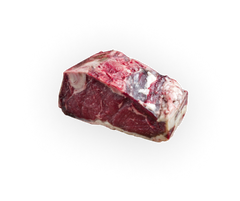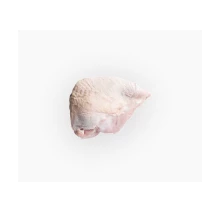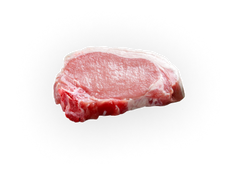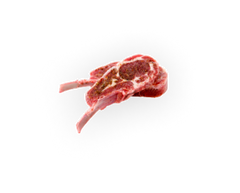In recent years, grass-fed meat has gained popularity among health-conscious consumers, chefs, and sustainability advocates. This rise in popularity isn't just a passing trend; it’s rooted in substantial benefits for health, the environment, and animal welfare. In this blog post, we’ll explore the reasons why grass-fed meat is better than conventional grain-fed meat, delving into its numerous advantages and why it deserves a place in your diet.
Nutritional Benefits of Grass-Fed Meat
One of the most compelling reasons to choose grass-fed meat is its superior nutritional profile compared to grain-fed meat. Here are some key nutritional advantages:
Higher Omega-3 Fatty Acids
Grass-fed meat contains significantly higher levels of omega-3 fatty acids. These essential fats are known for their anti-inflammatory properties and are crucial for heart health, brain function, and overall well-being. Omega-3s are typically found in fatty fish, but grass-fed meat offers an excellent alternative for those who may not consume enough seafood.
Rich in Conjugated Linoleic Acid (CLA)
Conjugated Linoleic Acid (CLA) is a type of fat found in higher concentrations in grass-fed meat. CLA has been associated with various health benefits, including reduced body fat, improved immune function, and a lower risk of chronic diseases such as cancer and diabetes.
More Vitamins and Antioxidants
Grass-fed meat is richer in vitamins and antioxidants, particularly Vitamin E, Vitamin A, and glutathione. These nutrients are vital for maintaining healthy skin, boosting the immune system, and protecting the body from oxidative stress.
Environmental Benefits of Grass-Fed Meat
The environmental impact of meat production is a major concern for many consumers. Choosing grass-fed meat can help mitigate some of these impacts:
Reduced Greenhouse Gas Emissions
Grass-fed cattle typically produce lower greenhouse gas emissions compared to grain-fed cattle. This is largely due to the more natural and sustainable farming practices involved in raising grass-fed livestock. Grass-fed animals are often part of rotational grazing systems that help sequester carbon in the soil, offsetting some of the methane emissions from the cattle.
Preservation of Biodiversity
Grass-fed farming practices can help preserve biodiversity. By grazing on diverse pastures, grass-fed cattle contribute to the maintenance of various plant species and natural habitats. This contrasts with the monoculture crops often used to feed grain-fed cattle, which can deplete soil nutrients and harm local ecosystems.
Improved Soil Health
Grass-fed livestock contribute to better soil health through natural grazing patterns. Their manure acts as a natural fertilizer, enhancing soil fertility and structure. This can reduce the need for chemical fertilizers and pesticides, promoting a healthier, more sustainable ecosystem.
Animal Welfare Considerations
The welfare of animals is an important factor for many consumers when choosing their meat. Grass-fed cattle typically experience better living conditions than their grain-fed counterparts:
Natural Diet and Lifestyle
Grass-fed cattle are allowed to graze freely on pastures, consuming a natural diet of grass and other forage. This is in stark contrast to grain-fed cattle, which are often confined to feedlots and fed a diet high in grains, which can lead to various health issues for the animals.
Less Stressful Living Conditions
The free-range lifestyle of grass-fed cattle reduces stress and promotes better overall health. These animals are not subjected to the crowded and often unsanitary conditions found in many feedlots, leading to a higher quality of life.
Culinary Advantages of Grass-Fed Meat
Aside from health and environmental benefits, grass-fed meat also offers unique culinary advantages that make it a favourite among chefs and home cooks alike:
Superior Flavour
Many people prefer the taste of grass-fed meat, describing it as more robust and earthy compared to grain-fed meat. The varied diet of grass-fed cattle contributes to a richer, more complex flavour profile.
Leaner Meat
Grass-fed meat tends to be leaner than grain-fed meat, which can be a plus for those looking to reduce their fat intake. While it may require more careful cooking to prevent dryness, the result is a tender, flavourful piece of meat.
Economic and Social Benefits
Supporting grass-fed meat production can also have positive economic and social impacts:
Supporting Local Farmers
By choosing grass-fed meat, consumers can support local farmers and sustainable farming practices. This can help bolster local economies and promote more resilient food systems.
Encouraging Sustainable Agriculture
Purchasing grass-fed meat sends a message to the market that consumers value sustainability and animal welfare. This can encourage more farmers to adopt grass-fed practices, leading to broader changes in the agricultural industry.
The benefits of grass-fed meat are numerous and far-reaching. From superior nutrition and better flavour to environmental sustainability and improved animal welfare, grass-fed meat offers compelling advantages over conventional grain-fed meat. By choosing grass-fed options, you not only enhance your own health but also contribute to a more sustainable and ethical food system.
As consumers become more informed about the impact of their food choices, the demand for grass-fed meat is likely to continue growing. Next time you’re at the grocery store or dining out, consider opting for grass-fed meat to enjoy its many benefits. Your body, the environment, and the animals will thank you.










